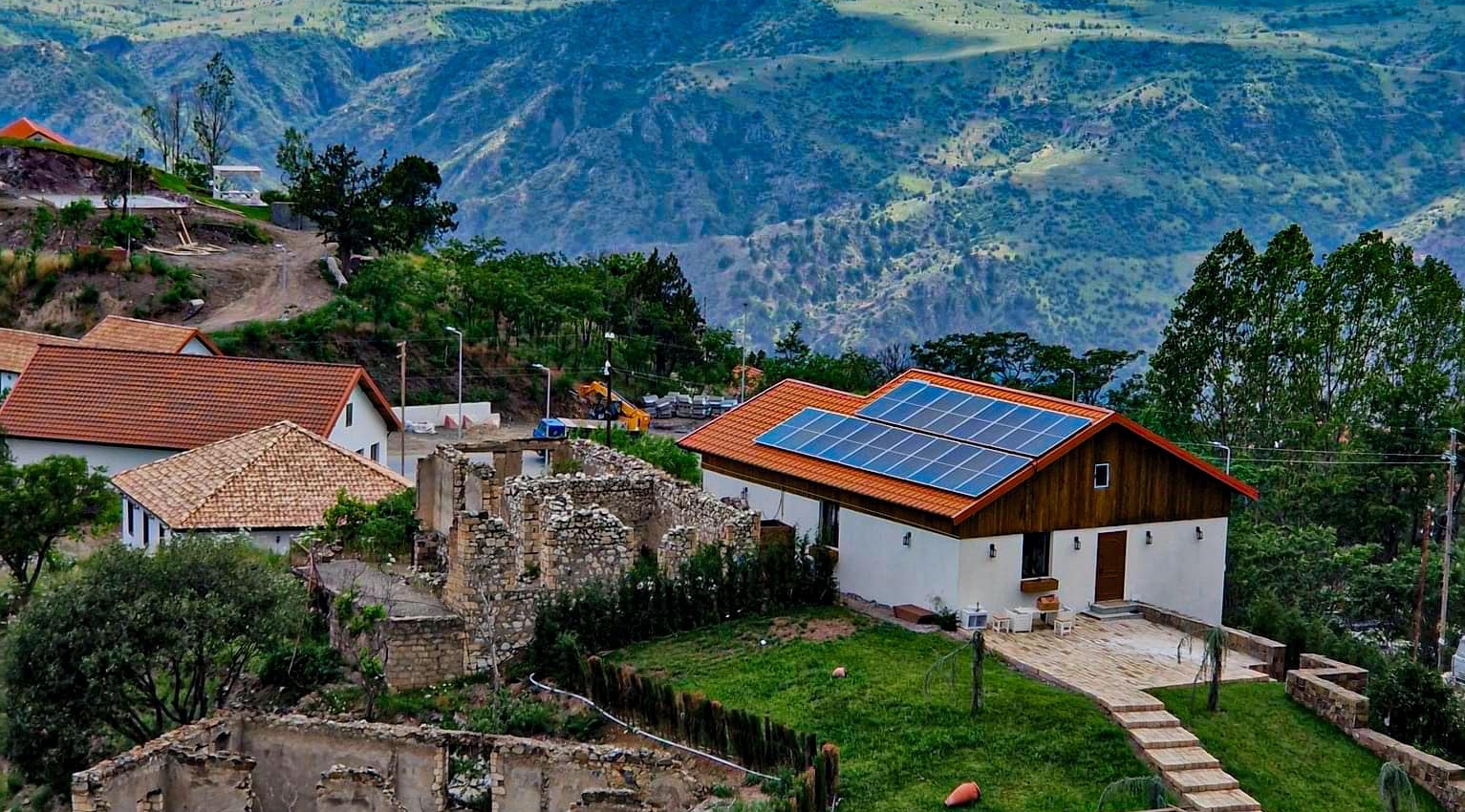We visited Fuzuli, Lachin, Sugovushan and Khojavand within the framework of the “Ecotourism standards in liberated areas” project implemented by the State Support Agency for Non-Governmental Organizations of the Globalized World Integration Public Union. In this article, we would like to share our observations on ecotourism in Lachin.
Touristic potential of the region
Lachin region is located in the south-west of our country, in the Lesser Caucasus. The territory of the district is bordered by Kalbajar to the north, Gubadli to the south, Khojaly, Shusha and Khojavand districts to the east, and Armenia to the west. Lachin has great economic potential and rich natural resources. Before the occupation, the agricultural sector, especially animal husbandry, was developed in the region. Fruit growing, tobacco growing, grape growing, grain growing, and beekeeping were profitable here. At the same time, the region is particularly favorable for mountain tourism and ecotourism potential. The thermal mineral spring of Lachin, which has a wide range of recreational opportunities, and the Lachin reserve, which has a rich flora and fauna and has an area of more than 21,000 hectares, expands the tourism opportunities of these areas. Bear, antelope, wolf, jackal, lynx, wild boar and other wild animals have settled in the region. The region’s ecotourism opportunities, strategic geographical position, natural landscapes, infrastructure created by the state, the opening of the Lachin International Airport will increase the flow of foreign and local tourists.
Let us note that the liberated areas, including Lachin, important steps are being taken in the direction of ensuring rapid integration into the economy, efficient use of its rich resources in economic development, and creation of a decent lifestyle for the region’s population. In addition, work is underway to create the necessary infrastructure to promote the tourism potential of the region. Besides the economic factor, tourism also presents the country to the world. Tourists also have the opportunity to get acquainted with the history and consequences of the occupation of Karabakh, which means the actual existence of war tourism.
Employment of the population in the tourism region
Speaking of the employment of the population returning to the region, we had the opportunity to talk about it with two families living in Lachin. It turned out that all the adult members of those families were employed in separate enterprises and the wages they received were satisfactory. Even a member of one of the families, an internally displaced person born in Baku, has moved to Lachin for 3 months and emphasized that it is much more comfortable and convenient to live and work here than the capital. They stated that the employment of the population in the region is mostly provided. In addition, the population has the opportunity to receive income from tourism. We witnessed that there was not even a single empty bed in Lachin during the weekend. Relatives of the people who live here often come to visit. Not only in the center of Lachin, but also in Zabux and other places, cottages, hotels and rental houses were full. Here, the rental prices of cottages or hotels, as well as houses, are much more expensive than in other tourist regions of the country. As it is the season, the demand is also high. We witnessed the practice of many of the people living there renting out their own house or a room in the house to tourists. In a word, the tourism opportunities of the region, first of all, create opportunities for the population’s employment.
At the same time, Agil Jamal, a member of the Public Council under the State Committee for Refugees and IDPs, whose opinion we learned about this, has a slightly different opinion: “It is true that the reintegration and settlement of Karabakh is underway, but at the same time, the region is approached more from a tourist point of view. A balance should be expected in this matter. The main attention should be paid to the infrastructure related to the permanent settlement of the population. The focus on tourism is not well received by the population returning to the region. In Lachin, the population prefers permanent employment first of all. They are worried about the limited opportunities to realize themselves in the region. The region is created from scratch. Here there are jobs that the population can establish in connection with small and medium enterprises. But here it seems that all the enterprises are established and the local population is simply employed as workers. This can limit their development opportunities according to their abilities. Another issue is the current limitation of backyard farming opportunities. In my opinion, for the development of various types of tourism, for example, rural tourism, the opportunities of the local population to engage in backyard farming, to raise chickens, to keep cattle, and to plant a garden should be increased.”
Some nuances related to our observations in Lachin
From our observations in the region, we came to the conclusion that society and nature are almost intertwined here. For example, even in the center of the district, it is possible to meet various wild animals in the yard of sparsely built houses in the evening. We witnessed a female jackal and her cubs walking on the roof of the house where we stayed at night. Residents accept such situations as normal. They say that they even saw wolves and pigs coming to the yards many times. The population believes that as the settlement increases, the intrusion of wild animals into the yards will decrease. However, contact with wild animals does not evoke negative emotions in them.
During conversations with local residents, we learned that during the occupation, Armenians cut down a number of local plants and trees and planted acacia trees in their place. Residents say that the invaders destroyed fruit trees, etc. they destroyed the plants and planted acacia instead to use it in beekeeping. We came across such acacia hills in several places.
One of the unfortunate circumstances is that the local tourists who come to the region are carelessly littering the nature. For example, along the Shusha-Lachin road, you witness that crowds of people litter the places where they sit for picnics and smoke kebabs. The liberation of these places from occupation, the fact that they are the Motherland, and their sanctity for our people according to our martyrs, seems to be of no importance to many local tourists. If this issue remains unchecked, in the future the beautiful ecotourism places of the region may be “decorated” with plastic waste. It is very important to have a working garbage concept here against the background of mass tourist flow to the region. In addition to wide awareness, warnings and fines should be applied in this matter. In our opinion, one of the main issues here is the protection of the cleanliness of the environment…
In a number of cases around Shusha and in Fuzuli, we have witnessed that tourists ignore the danger of landmines very seriously…
Another point is the protection of bioresources. is related to Videos of fishing or hunting animals in liberated areas are often shared on social networks, and in some cases it is claimed that these videos contain elements of poaching. Indeed, we did not observe such cases in Lachin. In any case, they said that trout is caught in Hekari and other rivers. However, it would be even better if regular education and work with the local community were carried out in order to conduct this hunt according to ecotourism standards and “catch-release” principles…
The article was prepared within the framework of the “Ecotourism standards in liberated areas” project implemented by the Public Union of Integration to the Globalized World with the financial support of the State Support Agency for Non-Governmental Organizations of the Republic of Azerbaijan. The position of the author or the interviewee and the position of the State Support Agency for Non-Governmental Organizations may not be consistent.


